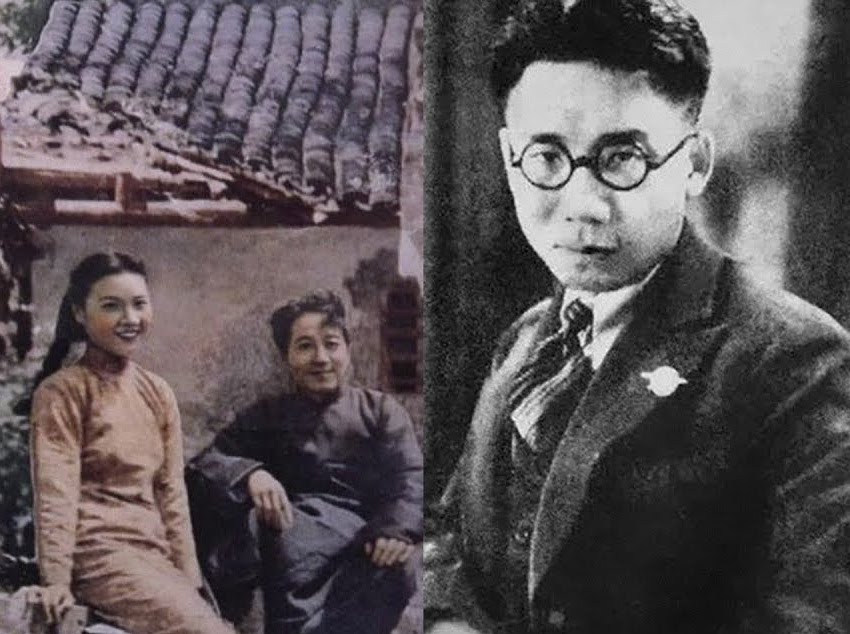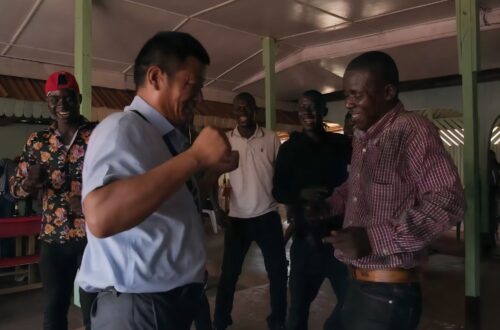China’s ‘film-poet’ who belatedly influenced a generation of filmmakers
Despite directing "Spring in a Small Town," which is recognized as one of the greatest Chinese films of all time, Fei Mu wasn't appreciated during his lifetime, dying as a refugee at the age of 44. Fortunately, his films were rediscovered in the 1980s.

January 31, 1951 was a dark day in the history of Chinese film. That morning, director Fèi Mù 费穆 died from a heart attack at the age of 44. Always a hard worker, Fei was up at 7 a.m., reviewing a screenplay at his desk. Chinese cinema’s sole “film-poet,” as Wong Kar-wai (王家卫 Wáng Jiāwèi) hailed him, had directed what is now often considered the greatest Chinese-language film: Spring in a Small Town (小城之春 xiǎo chéng zhī chūn) (1948). But at the time, few noted or perhaps even cared that Fei was dead. The director was living in exile in Hong Kong, shunned by the mainland. Critically, left-wing intellectuals ignored or downplayed his films, thinking his masterpiece “decadent” and politically inappropriate. Commercially, the studio Fei helped found in Hong Kong would close a few years after his death. It very likely seemed that the legacy of this film-poet would be forgotten.
In the first few decades following Fei’s premature death, he was largely neglected. Since the rediscovery of Spring in a Small Town in the early 1980s, however, Fei has no shortage of admirers. Zhāng Yìmóu 张艺谋 once commented that Fei’s movie “…reached such a high level at that time, that even today, no film could be compared with it.” His Fifth Generation contemporary Tián Zhuàngzhuàng 田壮壮 remade the film in 2002, while many other Chinese-language directors have cited Fei’s influence on their own work, such as Jiǎ Zhāngkē 贾樟柯 and his short Cry Me A River (河上的爱情 héshàng de àiqíng) (2008). In the present day, Fei has been lauded for his ambiguity and minimalism, as well as the technical craftsmanship in his composition and long takes.
Born in 1906 in Shanghai, Fei had a privileged and cultured upbringing. His parents introduced him to traditional Chinese art and medicine, and their Confucian values would shape his worldviews in adulthood. While Fei was steeped in classical culture, he also admired more modern and Western art, especially cinema. From a young age, Fei was a die-hard film buff. He watched whatever he could, and when Fei was still a student, he co-founded a film magazine. After he graduated, Fei held a respectable job as an accountant, and happily consented to an arranged marriage by his parents. Compared to the rebellious youth of the day, Fei was a pretty good kid. His passion for film, however, reached the point that Fei wasn’t content to just write and watch anymore. Ever the dutiful son, Fei asked his parents if he could quit accounting.
After some initial persuading, Fei left his old job and worked as a writer and translator for a theater chain. Later, in 1932, Fei joined the Lianhua Film Company as an assistant director. Lianhua was one of the three big players of the Chinese film industry in the ’30s, known for leftist social dramas like Ruǎn Língyù’s 阮玲玉 The Goddess (神女 shén nǚ). Within a year, Fei was allowed to direct his first film, Night in the City (城市之夜 chéngshì zhī yè). Fei’s debut, made when he was only 27, is one of the holy grails of Chinese cinema. Despite its warm reception, and featuring Ruan Lingyu in a leading role, Night in the City is a lost film. The plot is said to criticize the exploitation of poor urban Chinese by landlords, casting Ruan as a dock worker who tries to stop her family’s tenement from being torn down. Center Stage (阮玲玉 ruǎn língyù) (1991), Stanley Kwan’s stunning biopic of Ruan, would later reimagine a few of the film’s scenes.
Further in his career, left-leaning critics would slam Fei for his political sensibilities, yet Night in the City satisfied most of this circle for its progressive take on urban poverty. Fresh off this success, Fei would collaborate with Ruan on two other now-lost films. When Ruan committed suicide in 1935, Fei was devastated, blaming her death on the “feudal residue of our society.” Fei’s first film without Ruan, Song of China (天倫 tiān lún) (1935), is his earliest extant work. In contrast to Night, there’s nothing politically bold about Song. Lianhua made increasingly conservative films to cater to the Kuomintang, which called for a National Film Movement. Song of China is lyrical and finely-shot, but the plot is nothing more than a preachy ode to filial piety.
Fei’s fifth film, the talkie Blood on Wolf Mountain (狼山喋血记 láng shān dié xuè jì) (1936), is more abstract and interesting. Released shortly before the Second Sino-Japanese War, the movie put actresses Lí Lìlì 黎莉莉 and Lán Píng 蓝苹 (better known as Jiāng Qīng 江青) in an anti-imperialist allegory about a village terrorized by wolves. The rest of Fei’s output that decade included patriotic and experimental work. Murder in the Oratory (斩经堂 zhǎn jīng táng), a Peking Opera adaptation about a man whose mother convinces him to kill his wife, features some unusual and flashy camerawork. Early cinema was heavily inspired by theater, but Fei notably argued that cinema should look for its own expression and style, emphasizing the importance of visual narrative over big dramatic reveals.
The short Nightmares in Spring Chamber (梦断春闺 mèng duàn chūn guī) (1937) is a great example of these sentiments, verging on a surreal horror film. In Fei’s wordless nightmares, two women dream about a cackling Japanese man who resembles the Devil, playing with fire and sporting two horns of hair on his head. It’s eerie, striking with its imagery, and a piece of art that could only have been done through film. Fei’s Confucius (孔夫子 kǒng fūzǐ) (1940) brought the director to a slower, more nuanced style, in its depiction of the life of the ancient Chinese philosopher. While criticizing some threads of thought in Confucianism, such as its treatment of women, Fei was nonetheless fascinated by the historical man behind the philosophy. His biography, a year in the making and lavishly budgeted for the time, sought to portray the earthy, human side of his subject.
Unfortunately, Confucius turned out to be a box office bomb. Leftist critics thought that the movie should have been a vehicle to satirize and condemn Confucianism. Fei believed his work debunked the conservative myths behind the legendary sage, an aspect traditional viewers also didn’t appreciate. For the remainder of the war with Japan, as the Chinese film industry shut down, Fei directed for the stage. In 1946, he envisioned The Magnificent Country (锦绣山河 jǐnxiù shānhé), a film about a China ruled by both the Communists and the Nationalists. In the heated atmosphere of the Civil War, Fei struggled to complete the project, and it had to be shelved. (Honestly speaking, would either side have sat through a story about reconciling with their enemy?) The director would complete his final three films in 1948: two were opera adaptations, the other was Spring in a Small Town.
Produced on a small budget, and finished in only three months, nobody expected much from Fei’s melodrama about the complicated love affair between a lonely woman named Yuwen, her ill husband, and the handsome old flame who suddenly returns in her life. At a period when Chinese films were deeply concerned with social and political issues, Spring in a Small Town was focused on the individual and psychological. That’s not to say the film isn’t political. There’s a definite conflict between traditional duty and individual desire, while some scholars have interpreted the film as a feminist piece, or a representation of China’s trauma coming out of the war with Japan. For Communist critics of 1948 and the Maoist era, the problem with Spring was that it wasn’t advocating the right kind of politics.
Spring’s characters aren’t glorified peasants or soldiers or revolutionaries, fighting the Japanese, or the Nationalists, or landlords. They’re real, flawed people, with no easy answers or definite line between good and bad. The film’s lack of contemporary references to the Civil War, as well as its concentration on aesthetics over revolutionary politics, rubbed a lot of critics the wrong way. But while it might have been brushed aside on its original release, Spring in a Small Town has been better appreciated in our own time. Due to his psychological depth, and a preference for quiet, visual storytelling over bombastic political statements, Fei Mu and his work have aged gracefully. Seven decades later, Spring in a Small Town has joined the pantheon of not only Chinese film, but world cinema.






